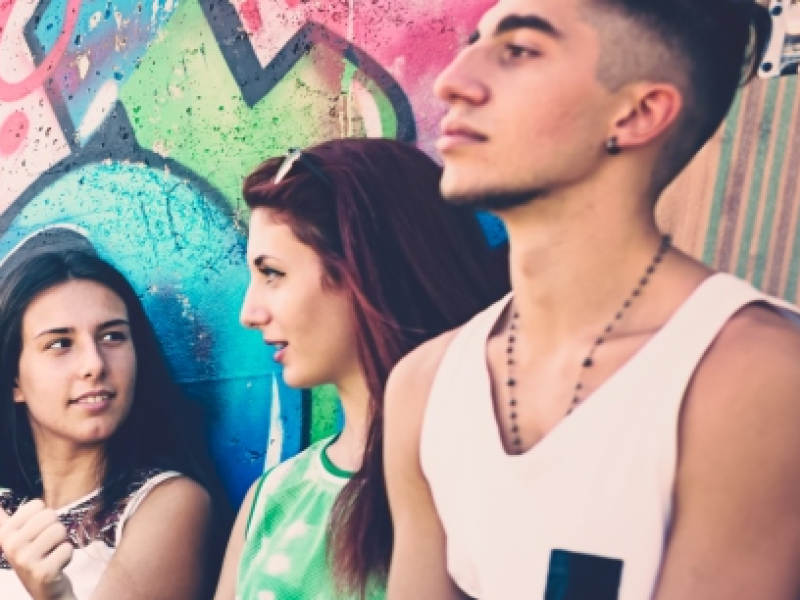Mind is delivering an innovative new mental health support service established in response to the rising number of young people presenting to Emergency Departments with episodes of self-harm.
The Youth Outreach Recovery Support (YORS) program supports young people 16-25 with significant mental health and wellbeing concerns for whom existing youth residential services are assessed as not a good fit.
The 18-month pilot program is being delivered by Mind in Rosanna, Traralgon and Wodonga. The program was established to address a number of issues, including rising presentations at Emergency Departments and young people with complex needs falling through the gaps in care.
Anoushka Wootton, Mind’s Youth Practice Stream Lead, said consultation with the Department of Health in Victoria, highlighted the need for the pilot program.
“We became aware that some young people, while badly in need of intensive psychosocial rehabilitation, recovery and wellbeing supports, were just not ready for a 12-month intensive residential program - or that it just wasn’t a good fit, for a variety of reasons,” Wootton said.
Psychosocial supports – like the kind provided by Mind – help people with mental health and wellbeing concerns to manage daily activities, rebuild and maintain connections, engage with education and employment, and participate fully in the community. These are supports that help people take positive steps in their recovery journey.
“With YORS we are able to provide the flexible, person-centred approach these young people need. Our peer support workers can meet them where they are at, both geographically and in their recovery.”
Peer workers – trained recovery practitioners who have their own lived experience of mental ill health and recovery – are an integral part of YORS. They facilitate one-on-one supports with young people and co-facilitation of psychosocial education courses, based on the Australian-first Mind Recovery College model. These support the building of the participant’s wellbeing and recovery knowledge and skills.
“The use of peer work is central to the YORS service mode. It really increases the capacity of young people to engage with the practitioner and their own recovery and wellbeing,” Ms Wootton said.
The YORS service structure is designed to be flexible. Each YORS peer practitioner can drive two hours to their client if necessary, or, if preferred, support them through the telehealth services Mind set up during lockdown.
How YORS complements YRRs
YORS services support young people either before, after or as an alternative to a Youth Residential Rehabilitation (YRR) service placement. Youth Residential Rehabilitation is a 12 month placement for young people that provides intensive support for young people with mental health and wellbeing concerns to work on their recovery goals. Mind operates three of the 24 YRRs across Victoria, in Rosanna, Traralgon, and Wodonga.
YORS provides intensive support for young people and can:
- prepare them to live in a YRR
- prepare them to live successfully in the community after discharge from a residential service
- or be a successful alternative for those not suited to residential support.
YORS provides individualised recovery orientated psychosocial outreach support in accordance with the person’s assessed need. Priority is given to young people:
- with a mental illness who are not receiving psychosocial supports from other providers
- who have multiple needs and disadvantage associated with psychosocial challenges
- are victims of family violence/sexual abuse
- are experiencing substance misuse, housing/risk homelessness, unemployment, disability, engagement in the youth and adult justice systems and/or risk of self-harm or suicide.
Young people can have difficulty engaging with clinical mental health services directly, for a number of reasons, so YORS employs a consultant psychiatrist one day per week. They provide valuable clinical guidance and leadership of young people’s recovery in the program’s non-clinical setting.
YORS also provides a crucial opportunity to ensure young people not in residential support have the coordinated case management they need.
“The young people referred to YORS can present as quite chaotic and transient, and can have three or four case managers and support agencies that may not even be aware of each other. This creates a fragmented approach to support, but YORS give us an opportunity to really coordinate and tailor the support to the needs and preferences of each young person,” Wootton said.
“YORS as a service has been able to really listen to the needs of young people in its development and that has been central to its success,” Wootton said. “The YORS and YRR programs work together to ensure that, no matter what the young person’s needs are, a referral is able to be accepted and we are able to work with the young person on their individual support needs.”
Anoushka Wootton recently presented on the YORS at the Child and Adolescent Mental Health conference 2022.
